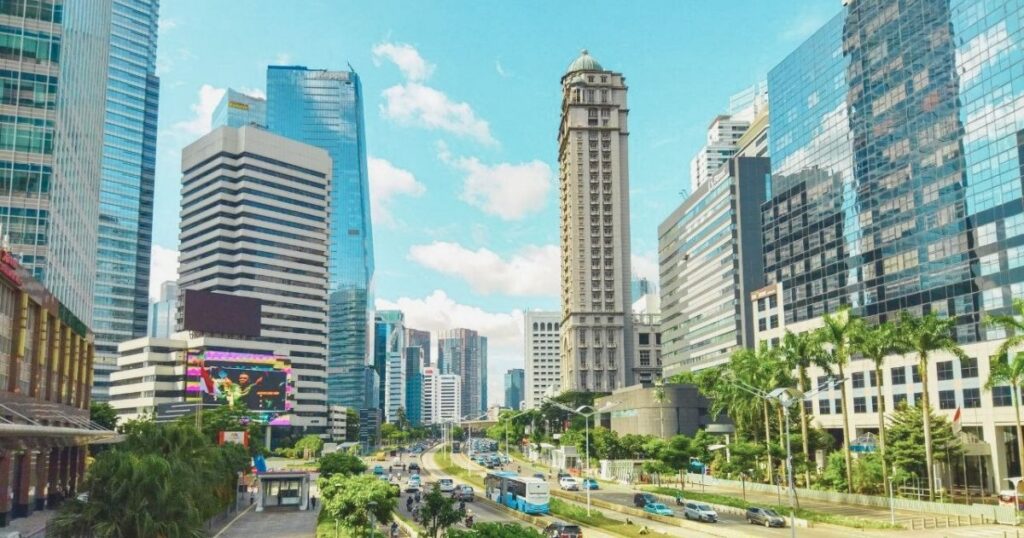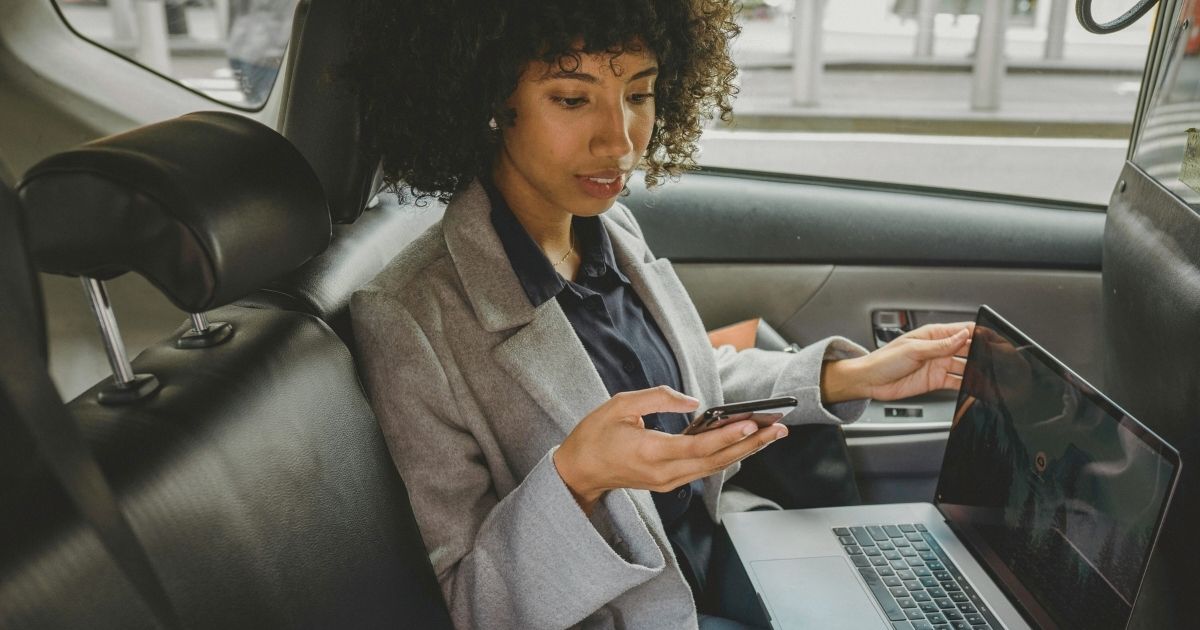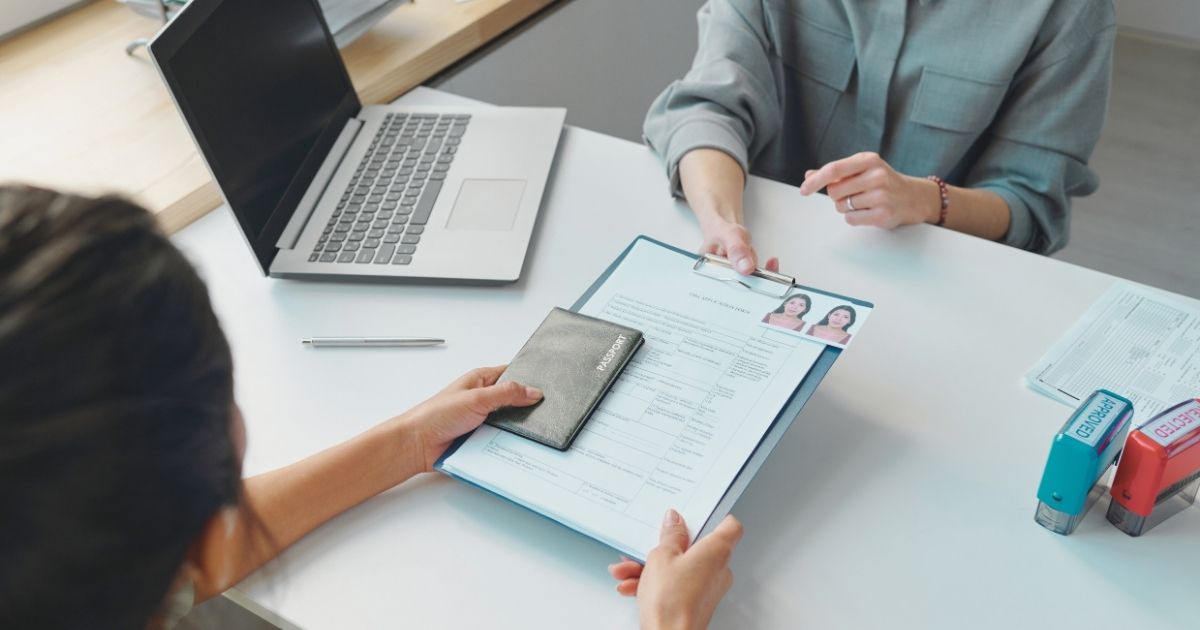The digital nomad visa in Indonesia has become a game-changer for remote workers seeking to live and work in this tropical paradise. This innovative visa program makes it easier than ever for digital professionals to legally stay in a country renowned for its natural beauty and vibrant culture. Picture yourself working with Bali’s stunning beaches as your backdrop or networking with professionals in Jakarta’s bustling coworking spaces.
In this guide, we’ll cover everything you need to know about Indonesia’s digital nomad visa, including eligibility, application requirements, and practical tips for settling into your new home. Whether you’re seeking adventure or tranquility, Indonesia is ready to welcome you with this comprehensive visa solution.
What is the digital nomad visa for Indonesia?

The digital nomad visa in Indonesia, officially known as the Second Home Visa, is designed to attract remote professionals looking to live and work in the country. This visa allows digital nomads to stay long-term while contributing to Indonesia’s growing digital economy, making it an ideal option for those seeking a tropical base with modern amenities.
With the Second Home Visa, digital nomads can enjoy an extended stay of up to five years, with the option to renew. A major advantage is the tax exemption on income earned outside Indonesia, making it financially appealing. The visa also accommodates families, allowing applicants to include spouses and dependents. Best of all, remote workers can settle in breathtaking locations like Bali and Lombok, offering the perfect mix of work and paradise.
Who qualifies for the digital nomad visa in Indonesia?
Indonesia’s digital nomad visa, or Second Home Visa, is available to remote workers, freelancers, and entrepreneurs who meet specific requirements. Applicants must demonstrate financial stability, secure health insurance, and provide a clean criminal record to be eligible.
Remote workers and freelancers
To qualify, applicants must prove they work remotely for an international company or operate a freelance business with clients outside Indonesia. This ensures they are financially independent and not taking local job opportunities.
Financial stability
The Indonesian government requires applicants to show a minimum bank balance of approximately $150,000 as proof of financial security. Additionally, they must provide evidence of steady income to cover living expenses during their stay.
Health insurance
Comprehensive health insurance covering medical emergencies is mandatory. This ensures digital nomads have access to healthcare without placing a burden on Indonesia’s medical system.
No criminal record
Applicants must submit a police clearance certificate from their home country to confirm they have no serious criminal offenses, ensuring they meet Indonesia’s security and legal requirements.
How to apply for a digital nomad visa in Indonesia

The application process for Indonesia’s digital nomad visa is straightforward, but it requires careful preparation. Following these steps will help ensure a smooth approval process.
Step 1: Gather your documents
Applicants must prepare several key documents, including a passport valid for at least 18 months, proof of remote work such as contracts or business registrations, and bank statements showing the required financial balance. Additional requirements include health insurance coverage, a police clearance certificate, and a completed visa application form from Indonesia’s immigration website.
Step 2: Submit your application online
The visa application is completed through Indonesia’s official immigration portal. Applicants must upload all necessary documents and pay the required application fee before submission.
Step 3: Attend an interview (if required)
Some applicants may be asked to attend an interview at an Indonesian consulate or embassy. This step is used to confirm employment status, financial stability, and the applicant’s intentions while staying in Indonesia.
Step 4: Wait for approval
Processing times for the digital nomad visa in Indonesia typically range from 2 to 4 weeks. Once approved, applicants will receive their visa and can begin their journey, enjoying Indonesia’s beautiful landscapes and thriving remote work community.
🌟 Pro tip: consider saving for additional costs like local transport, accommodation, and leisure activities in Indonesia.
Digital infrastructure and connectivity in Indonesia
Indonesia’s digital landscape varies significantly across its 17,000 islands, making reliable connectivity crucial for remote workers. Major cities offer robust infrastructure, while more remote locations require strategic planning to maintain professional productivity.
Internet solutions and coworking spaces
Indonesia’s internet infrastructure has evolved rapidly, particularly in digital nomad hotspots. While fiber-optic connections are common in urban areas, offering speeds up to 100 Mbps, remote workers should always have backup solutions ready.
Maintaining reliable connectivity is crucial when working with your digital nomad visa in Indonesia. Savvy digital nomads are increasingly turning to Holafly’s eSIM for seamless connectivity across Indonesia’s diverse regions. This innovative solution eliminates the hassle of physical SIM cards and provides instant activation, ensuring you stay connected from day one. Whether you’re managing client calls from a Bali beach club or uploading deliverables from a Jakarta coworking space, Holafly’s flexible data plans adapt to your professional needs. The service is particularly valuable during the initial settling-in period, providing immediate internet access while you arrange long-term solutions.
Complementing your eSIM connection, Indonesia offers numerous professional coworking spaces equipped with high-speed internet. These spaces often serve as networking hubs, featuring backup generators and redundant internet connections to ensure uninterrupted productivity.
🌟 Pro tip: consider having both a local SIM card and an eSIM for redundancy, ensuring you’re never without internet access during important work calls. Holafly’s eSIM can be activated before you even arrive in Indonesia, giving you immediate connectivity upon landing.
Technology hubs and innovation centers
Major Indonesian cities have emerged as significant tech hubs, offering digital nomads access to innovation centers and startup communities. Jakarta’s Block71 and Bali’s startup village provide networking opportunities and resources for remote professionals.
💡 Did you know? Indonesia’s digital economy is the largest in Southeast Asia, with a projected value of $146 billion by 2025, creating numerous opportunities for digital nomads.
Living and working in Indonesia with a digital nomad visa

With your digital nomad visa in Indonesia approved, you can settle in one of the world’s most stunning and dynamic destinations. Bali remains the top choice for remote workers, offering a thriving digital nomad community and an abundance of coworking spaces. Jakarta is ideal for those who prefer a fast-paced urban lifestyle, with excellent infrastructure and business opportunities. For a quieter experience, Lombok provides breathtaking beaches and a relaxed atmosphere, perfect for balancing work and leisure.
Indonesia also boasts a variety of top-tier coworking spaces. Hubud in Ubud is known for its strong community vibe, making it easy to connect with other freelancers and entrepreneurs. Outpost Bali offers modern facilities and frequent networking events, ideal for growing your professional circle. In Jakarta, GoWork provides a premium coworking experience in the heart of the city, catering to digital nomads who need high-end amenities and a productive workspace.
Seasonal considerations for digital nomads in Indonesia
Understanding Indonesia’s distinct seasons can significantly impact your work-life experience as a digital nomad. Strategic planning around these patterns ensures a comfortable and productive stay.
Weather patterns and work planning
Indonesia experiences two main seasons: dry (April to October) and wet (November to March). Each season presents unique considerations for digital nomads:
The dry season offers optimal conditions for outdoor workspaces and exploration, while the wet season may require more indoor working arrangements and reliable backup power solutions.
Peak seasons and cost variations
Understanding tourist seasons helps digital nomads optimize their stay:
High Season (July-August, December-January): Expect increased prices for accommodation and coworking spaces, particularly in popular areas like Bali. Shoulder Season (April-June, September): Ideal for digital nomads seeking balance between good weather and reasonable prices.
🌟 Pro tip: book long-term accommodation during shoulder season for better rates and negotiating power.
Tax implications of the digital nomad visa in Indonesia
If you stay in Indonesia for more than 183 days in a year, you may be classified as a tax resident, which could impact your tax obligations. It’s important to track your stay and understand how Indonesian tax laws apply to long-term digital nomads.
One of the key advantages of the digital nomad visa in Indonesia is that income earned outside the country is exempt from local taxes. However, you should still ensure compliance with tax reporting requirements in your home country to avoid any legal or financial issues.
🌟 Related resource: for more details, consult Nomada’s guide to taxes for digital nomads.
Tips for thriving as a digital nomad in Indonesia

Stay connected
- Use reliable mobile data providers like Telkomsel or XL.
- Ensure your accommodation offers high-speed internet, especially in remote areas.
Embrace local culture
- Learn basic Indonesian phrases like “Apa kabar?” (How are you?) and “Terima kasih” (Thank you).
- Respect local customs, particularly at temples and cultural events.
Travel smart
- Rent a scooter to explore local areas but ensure you have an international driving permit.
- Use ride-sharing apps like Grab for affordable transport options.
Ready to embark on your digital nomad journey in Indonesia?
The digital nomad visa for Indonesia is your gateway to living and working in paradise. With tax benefits, an extended stay, and access to world-class destinations, this visa makes your remote work dream a reality.
🌟 Ready to simplify your transition to Indonesia? Let Nomada guide you with expert advice and practical resources. Explore our Indonesian visa support or contact us today. 🌴
Frequently asked questions about the digital nomad visa in Indonesia
The digital nomad visa, officially called the Second Home Visa, allows remote workers and freelancers to live and work in Indonesia for up to 5 years. It includes benefits like tax exemptions on foreign-earned income and family inclusion.
Eligibility requires proof of remote employment or freelance work, a minimum bank balance of approximately $150,000, comprehensive health insurance, and a clean criminal record.
You need to gather documents like proof of income, health insurance, and a police clearance certificate. Submit your application online through the Indonesian immigration portal, attend an interview if required, and wait for approval, which typically takes 2–4 weeks.
The visa application fee ranges from $150 to $200, with additional expenses for health insurance ($50–$150 per month) and document preparation, such as translations or notarizations.
Yes, alternatives include the Social-Cultural Visa (B211A) for stays up to 180 days and the Business Visa for short-term business-related activities in Indonesia.
Indonesia’s tropical climate means you’ll need to plan your work schedule around seasonal patterns. The dry season (April-October) offers more reliable conditions for outdoor working and stable internet connectivity. During the wet season (November-March), ensure your accommodation and workspace have proper protection against heavy rains and potential power fluctuations.
Bali (particularly Canggu and Ubud), Jakarta, and Yogyakarta offer the most reliable internet infrastructure. These areas have numerous backup options, including 4G/5G coverage and fiber-optic connections. Major coworking spaces in these regions often have generator backup and multiple internet providers.






